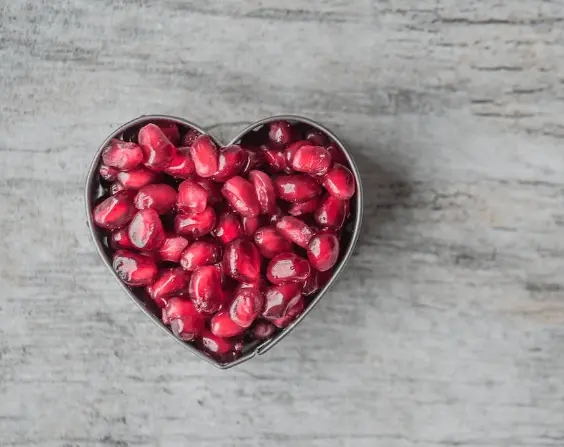Heart diseases are one of the major concerns in the present day. Heart diseases are a common cause of death, nearly 1/3rd of deaths around the world are due to heart disease.
Based on a study, currently, around 6 million people are suffering from heart failure and about half of these people die within 5 years of being diagnosed.
Eating foods which are high in cholesterol, fats and sodium can be extremely bad for your heart. When consumed in excess, it may increase the risk of heart disease over time. For this reason, avoiding all possible risk factors is the first and ideal step towards a healthy heart.
There are multiple ways to keep your heart healthy and away from any risks. Scheduling an annual checkup is recommended to know the functioning of the system. Daily exercises and a stress-free lifestyle can be one of the ways.

Quitting smoking is one of the best ways to take care of your heart if you are a smoker. Apart from these things, the simplest way by which you can maintain a healthy heart is by consciously eating the right food and making healthy lifestyle changes.
In this article, we discuss some of the best foods that you should eat to keep your heart safe and healthy.
Green leafy vegetables
Green leafy vegetables like lettuce, spinach or kale are best known for being rich in antioxidants, vitamins and minerals. Particularly, they are the best sources of vitamin K which plays a crucial part in maintaining heart health, specifically in the arteries.
Dietary nitrates, found in these leafy veggies have been associated with reducing blood pressure, elevating the functions of the cells around blood vessels and decreasing arterial stiffness. As per some studies, eating green leafy vegetables is directly associated with a low risk of cardiac issues and coronary heart disease.
Listen to your elders when they ask you to eat your greens. It comes with many health benefits, not just a healthy heart.
Berries
Berries are simply amazing when it comes to nutrients. Blackberries, blueberries, raspberries and strawberries have an abundance of nutrients which are essential for your heart. Antioxidants present in berries reduce inflammation which can contribute to heart disease.
They are a great source of fibre, vitamin C and A as well. A study has shown that eating berries daily reduced the amounts of LDL or bad cholesterol in people with obesity. Furthermore, it was also seen to reduce blood pressure and body mass index (BMI) significantly.
Moreover, berries can satisfy your dessert or sugar cravings! You may add fresh or frozen berries to Greek yoghurt and voila! You have a delicious yet healthy snack packed with nutrition.

Dark Chocolate
Isn’t chocolate a mass favourite? Did you know eating dark chocolate could keep your heart robust? Eating chocolate is connected with a reduced risk of heart issues. It is also important to eat in moderation.
Moderate amounts of dark chocolate can boost the well-being of your heart and reduce the risk of stroke. It also is beneficial in preventing diabetes.
Chocolates can be high in calories and sugars. Consequently, it may cause other health problems. Be sure to choose dark chocolate with about 70% cocoa content and do not exceed the moderate intake levels.
Walnuts
Walnuts are one the amazing sources of fibre, manganese, magnesium copper and omega 3s. Adding a few servings of walnuts every day into your diet can prevent heart disease.
Based on a study, it was evident that walnuts decreased the levels of bad cholesterol and blood pressure. Walnuts being rich in omega-3 fatty acids are a perfect snack to eat on the go. Other nuts such as almonds, peanuts and pistachios are also heart-healthy.
Tomatoes
Lycopene is a natural plant pigment which is rich in antioxidants. These antioxidants neutralize harmful free radicals and reduce inflammation which can be causative factors for heart diseases.
It was noticed that there was an elevation in the levels of good cholesterol (HDL) in overweight women who ate two raw tomatoes for 4 days a week. This good cholesterol can remove excess cholesterol and plaque from the arterial walls and protect your heart against strokes or other diseases.
These fibre-packed red fruits additionally have potassium, vitamin C and choline which are good for your heart.
Olive oil
Olive oil is a great alternative to refined vegetable oils. Out of its many benefits, olive oil is essential for preventing heart diseases. It not only prevents heart diseases but also improves the overall wellness of the heart.
Apart from having ample amounts of antioxidants, olive oil is rich in monounsaturated fatty acids which further reduce the chances of developing heart disease. Moreover, it reduces the mortality rate or the risk of death from a heart condition.
Oleic acid present in olive oil is known to treat hypertension.
Garlic
If you have read our article on how to improve immunity, you should already know that garlic is a good old natural remedy for many health problems. Including it in your everyday meals can help you with many common ailments.
In recent research, it was confirmed that garlic has certain medicinal effects. It is also proven to improve heart health. In a study that was conducted, garlic extract was an effective way in reducing blood pressure. To our surprise, it is as effective as a prescribed drug to lower blood pressure.
Moreover, garlic prevents platelet accumulation which further decreases the risk of blood clotting and heart strokes.

Fish oil and Fatty fish
You must be aware of how essential omega-3 fatty acids are in maintaining heart health. Fatty fish such as tuna, salmon or sardines are packed with these fatty acids.
Consuming fish for longer periods is not only associated with reduced risk of cardiovascular diseases but also linked to lowered blood cholesterol, fasting blood sugar, blood pressure and even depression. If you do not like eating seafood, you may opt for fish oil or omega-3 supplements.
Beans
Based on a few studies, beans are said to reduce certain potential risk factors for heart diseases. Eating beans reduces the levels of bad cholesterol and triglycerides in the blood. It is also associated with lowering blood pressure levels.
Other than beans, chickpeas and lentils, commonly called pulses are all essential in lowering the risk of heart disease. As they are loaded with fibre, antioxidants and proteins, they are important in maintaining overall health.
Do make sure to avoid canned beans as they contain an unnecessary amount of salt which in turn has a bad impact on your heart.
Green tea
As you may already know, green tea helps burn fats. It has antioxidants which prevent cell damage and reduces inflammation to protect your heart.
Green tea extract reduces blood pressure, bad and total cholesterol and triglycerides. Taking green tea supplements or drinking green tea can be beneficial for your heart. Drinking matcha, a beverage similar to green tea, is also good for your heart.
Seeds
Flax seeds, chia seeds and hemp seeds all have nutrients which are essential for the proper functioning of the heart. They are also rich in omega-3 fatty acids. Incorporating these seeds into your diet can help you reduce the risk factors.
Hemp seeds contain an amino acid called arginine which reduces levels of inflammatory markers in the blood. Besides that, flax seeds help you keep cholesterol levels and blood pressure under control. Furthermore, adding flaxseeds to your diet is not only beneficial for your heart but it can prevent cancers and help with other gastrointestinal issues.
Apart from the above-mentioned foods, you may include the following foods as well to improve your health and save your heart:
- Edamame
- Avocados
- Almonds
- Whole grains like whole wheat, oats, rye and quinoa
- Tofu
- Sweet potatoes
- Oranges
Ways to prevent heart diseases
Few lifestyle modifications can help reduce the risk factors and maintain optimum health. Out of all the ways, eating a balanced diet is the first and the most crucial part.
Working out regularly is necessary to strengthen your heart and reduce cholesterol and blood pressure. Moreover, maintaining an ideal weight is necessary. Make sure your BMI lies between 20 to 25.
Smoking and drinking are the direct risk factors affecting your heart in the long run. Additionally, some underlying factors such as diabetes, obesity and blood pressure can cause severe heart diseases. Seek treatment for these underlying causes for better and improved heart health.
Conclusion
Your diet and your heart health are interlinked. It is necessary to be mindful of the foods that you eat as it can lead to several serious issues.
Several lifestyle choices can aggravate the risk of heart disease. Diabetes, overweight, obesity, smoking, lack of exercise, high blood pressure, high alcohol intake and excessive stress are some of the many attributing factors.
It is necessary to watch what you eat as every component can have an impact on your heart. Including the above-mentioned foods as a part of a well-balanced, nutritious diet can keep your heart in good condition.
